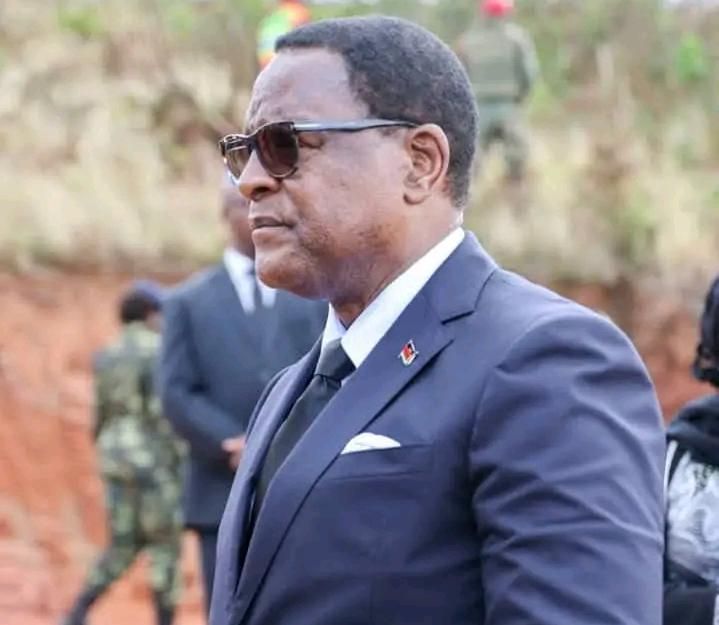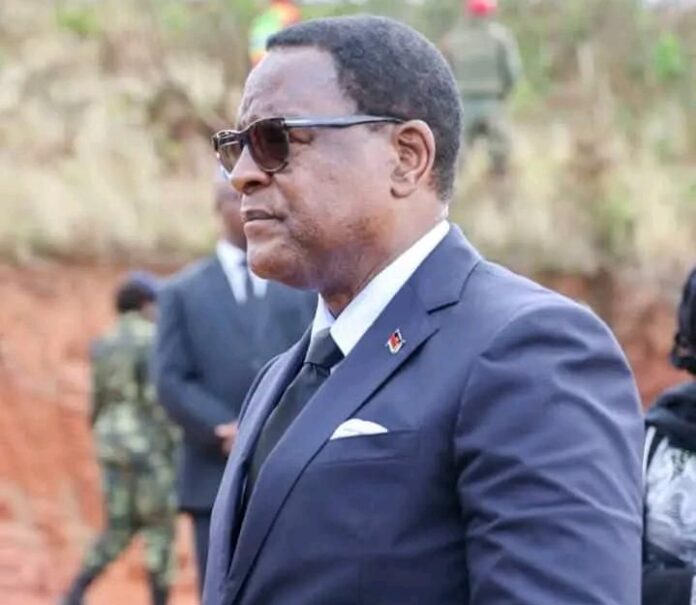By Andrew Nyondo
For so many times in Malawi, President Lazarus McCarthy Chakwera has become a victim of insults from power hungry politicians who have been attributing everything that seem not to be going well in the country to his leadership. But it is evident that most of the situations Malawi has been experiencing throughout his leadership are beyond his control.
Politicians, particularly from the opposition block have been taking turns to castigate President Chakwera on economic misfortunes that are evidently induced by natural circumstances such as cyclones, climate change and other factors such as nation to nation conflicts.
The world’s top-notch researchers and accredited global institutions have been conducting research to analyse how climate change, cyclones and wars have recently impacted least developed countries such as Malawi.

There have been so many reports published on the internet for people to access information and get a deep understanding on how countries, particularly Malawi have been affected in the contexts of food production and pricing.
But overzealous politicians have decided to give a blind eye on these reports. Instead they have gone flat out to castigate President Chakwera for whatsoever seem not to be in a ‘good economic trajectory.’
One example is is the blame they are putting on the President regarding sugar scarcity and prices without understanding cautions which researchers have given in various reports.
In 2023, the Africa News (an online publication) published an article which is exposing how the African continent and the rest of the world got affected with the scarcity of sugar and the general rising of prices of commodities. The article which was updated on 13 August 2024 gives reasons that have recently led to scarcity of sugar and high prices not only in Malawi but also other African countries and the rest of the globe.
The article reads in part “Sugar worldwide is trading at the highest prices since 2011, mainly due to lower global supplies after unusually dry weather damaged harvests in India and Thailand, the world’s second- and third-largest exporters.
“This is just the latest hit for developing nations already coping with shortages in staples like rice and bans on food trade that have added to food inflation. All of it contributes to food insecurity because of the combined effects of the naturally occurring climate phenomenon El Nino, the war in Ukraine…”
Adding to that online publication, the United Nations Food and Agriculture Organization predicted a 2% decline in global sugar production in the 2023-24 season. This according to available reports, was compared with the previous year, which according to FAO translated to a loss of about 3.5 million metric tons from 3.8 million.
In Africa, Nigeria was affected in recent years as Abuja sugar traders struggled to make their ends meet in 2021 because of the banning on importation of refined sugar. In turn, sugar prices began soring up.
The African News publication further highlighted that the 50-kilogram (110-pound) bag of sugar that one trader named Usman bought within seven days for $66 went up to $81 in Nigeria. This development led to the dwindling of his customers.
The publication quoted the trader as saying “The price keeps increasing every day, and we don’t know why,”
In a Malawian context, people ask the same question. Others are wondering why sugar prices are going up everyday when production is done within the country. Over ambitious politicians who want to displace President Chakwera on September 16 2025 have taken a centre stage in politicing the commodity with their belief that the President is not doing enough to bail out Malawians on the matter.
But they know the truth. And one of the truth as quoted from the African Brief analysis is: “It’s partly due to the El Nino, a natural phenomenon that shifts global weather patterns and can cause extreme weather conditions ranging from drought to flooding…”
In recent years, Malawi had alot of floods and bad weather more especially in Chikwawa and Dwangwa where sugar is produced. There have been inadequate sugar production because of these unforseen weather conditions. As a result people have been scrambling for few available packets of sugar- a development that has recently led politicians to begin politicising the product.
THE QUESTION PEOPLE MAY ASK IS WHY ONLY MALAWI?
Its not only Malawi which is being affected now. According to researchers, some of the countries such as India endured its driest months in the western state of Maharashtra, which accounts for over a third of its sugarcane production.
This situation affected India’s sugar production.
It was predicted that production would decline by 8% in a year according to the Indian Sugar Mills Association reports. This affected the nation the same way Malawi is being affected.
But also, one important thing for Malawians to know and accept is the revelation on how Ukraine-Russia war and Covid-19 have affected the least developed countries.
In his analysis titled The Russia-Ukraine Conflict: Impacts on Commodity Markets in Malawi published in April 2022, researcher Greenwell Matchaya of the Consultative Group on International Agriculture posits that “The prices of almost all the commodities examined, including wheat, appear to have been affected by the Russia-Ukraine war. This was expected as Malawi imports 75% of its wheat from Russia and Ukraine, and the scarcity created by the war pushed prices higher.
The report further says “Equally, sugar prices went up significantly from March in both rural and urban markets of Malawi, which may partly be a result of the war, as some of its consequences included an increase in transport costs as well as a reduction in the international supply of commodities due to countries hoarding their stocks to smooth their domestic consumption…”
The United Nations Development Programme (UNDP) in its policy brief report (Policy Brief, Issue No. 2) also presents the effects that have emerged on the Malawi economy because of the Russia-Ukraine war, the COVID-19 pandemic, and climatic shocks.
With this understanding, it is questionable whether the Malawi opposition leaders are justified to blame President Chakwera on the situations which Malawians are facing. The opposition block must be honest with its claims because truth has been given publicly on how Malawians have been affected by the circumstances which the President himself cannot control.
As Malawians are gearing for the September 16 General Elections, it must be made clear that opposition party leaders are deliberately twisting issues taking advantage of the ignorance of most people in Malawi on how prices of commodities are fixed.
The most dangerous part of their narratives is the lack of their interest to tell potential voters on what they will do to fix the economy which has been destroyed by natural disasters and global wars. Malawians need to understand them as greedy leaders who have nothing to offer to them but just to loot and plunder the little available resources.
For the past five years, President Chakwera has done alot despite the nation facing economic challenges. The road infrastructure is being modernised in the country. The railway line transport brought back to cut the transportation costs.
There are so many infrastructure elected under his leadership. All these have been done at a time Malawi is struggling to stabilise its economy and at the same time when the country is facing forex shortages.
What else shall malawians need from those leaders who make noise but cannot propose or provide solutions to challenges the country has been facing? Malawi will emerge a better country if opposition political leaders can begin telling the country’s citizens the truth that they deserve to be told.
President Chakwera has done better considering other factors which huma beings cannot control. He deserves to finish his ten-year term of governing the country.



